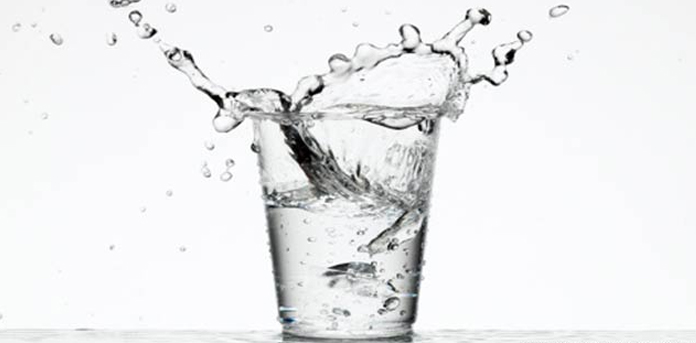Many people search for effective and sustainable weight loss methods. One method that has developed interest for its potential impact on shedding excess pounds is water fasting. This method involves refraining from eating food for a specific period while drinking only water. Supporters claim that this practice can offer several benefits such as quick fat loss, improved insulin sensitivity, and cellular repair through autophagy. However, it’s important to note that water fasting also poses risks and challenges that require careful consideration.
What Is Water Fasting?
Water fasting is a diet that involves not eating any food and only drinking water for a set period. When water fasting, people avoid solid food, other drinks besides water (like tea or juice), and supplements that contain calories. The main goal of water fasting is to create a calorie deficit, which means the body uses its stored energy (mostly fat) to meet its energy needs. This can result in weight loss as the body breaks down stored fat to provide energy for vital bodily functions.
Benefits Of Water Fasting

- Caloric Deficit: No food intake creates a deficit, leading to energy sourced from stored fat.
- Metabolic Changes: Fasting may also improve fat utilization and boost fat burning.
- Insulin Sensitivity: It might enhance insulin sensitivity and blood sugar regulation.
- Cellular Autophagy: It can activate autophagy, a cellular restoration process that removes damaged parts and also promotes cellular health.
- Hormonal Changes: It might also lead to hormonal changes that help weight loss, including improved release of norepinephrine and human growth hormone.
- Mental Clarity: Some individuals report enhanced mental clarity and focus during fasting periods.
- Portion Control: It encourages conscious eating by creating a heightened awareness of hunger cues and portion sizes.
- Reduced Inflammation: It also helps you decrease inflammation in the body, contributing to weight loss.
- Digestive Rest: It gives you a break for your digestive system to rest and reset.
Known Health Risks
- Nutritional Deficiencies: Prolonged fasting can lead to deficiencies in essential nutrients, vitamins, and minerals.
- Muscle Loss: Lengthy fasting can also cause the body to break down muscle tissue for energy.
- Electrolyte Imbalances: It can also disrupt the balance of electrolytes, leading to health difficulties.
- Hypoglycemia: Fasting may cause low blood sugar levels, resulting in dizziness, weakness, and potential fainting.
- Fatigue and Weakness: Lack of energy from food can result in fatigue, weakness, and decreased physical and cognitive function. Orthostatic Hypotension: It might lead to low blood pressure upon standing, inducing dizziness or fainting.
- Gastrointestinal Distress: Continuing eating after a long fast can cause digestive discomfort and also gastrointestinal issues.
- Eating Disorders: Fasting can trigger or exacerbate eating disorders, such as anorexia or bulimia.
Sample Water Fasting Routine
Day 1: Preparation Day
- Consume nutrient-dense foods to prepare your body for fasting.
- Hydrate well throughout the day.
- Avoid heavy or processed foods.
Day 2: 16-Hour Intermittent Fast
- Finish dinner by 8:00 PM.
- Start fasting after dinner and continue until noon the next day.
- Drink plenty of water during the fasting period.
Day 3: 24-Hour Intermittent Fast
- Finish dinner by 7:00 PM.
- Fast for a full 24 hours, consuming only water.
- Break the fast with a light meal or snack at 7:00 PM.
Day 4-5: Return To Regular Eating
- Resume your regular eating pattern.
- Focus on nutrient-rich foods and stay hydrated.
Day 6: 36-Hour Extended Fast
- Finish dinner by 6:00 PM.
- Fast for 36 hours, drinking only water.
- Break the fast with a small, easily digestible meal at 6:00 AM on Day 8.
Day 7: Gradual Reintroduction of Food
- Start with small portions of easily digestible foods.
- Include fruits, vegetables, lean proteins, and whole grains.
- Furthermore, listen to your body’s hunger cues and avoid overeating.
Tips for Your Water Fasting Routine
- Remember to stay hydrated during fasting periods by drinking water, herbal tea, or black coffee.
- It’s important to prioritize rest and get enough sleep to manage potential fatigue.
- Avoid any strenuous physical activities that may cause exhaustion.
- Keep an eye on how your body is reacting, and if you feel unwell, stop fasting and seek medical advice.
- Moreover, be prepared to break your fast if you experience severe discomfort or any health issues.
FAQs
Is water fasting safe for everyone?
Before attempting water fasting, it is important to consult a healthcare professional, especially if you have medical conditions such as diabetes, eating disorders, or heart problems. Water fasting may not be safe for everyone.
Can water fasting lead to muscle loss?
Prolonged water fasting can lead to muscle loss as the body seeks alternative sources of energy. To avoid this, it is recommended to incorporate exercise and protein-rich meals when breaking the fast.
How long should I fast for weight loss?
The duration of fasting appropriate for weight loss varies for each individual. It is advisable to start with shorter fasting periods, such as intermittent fasting, and gradually increase them. It is also recommended to consult a healthcare professional to determine the best fasting strategy for your goals and health.

